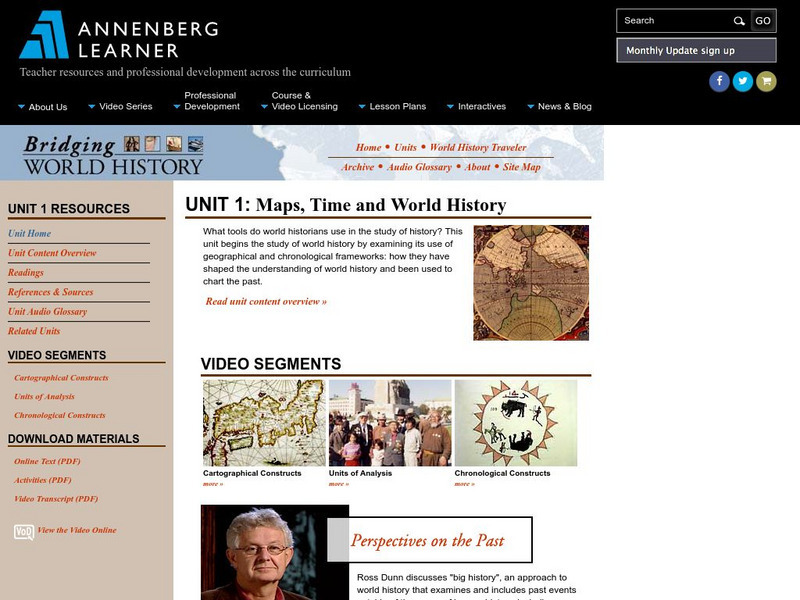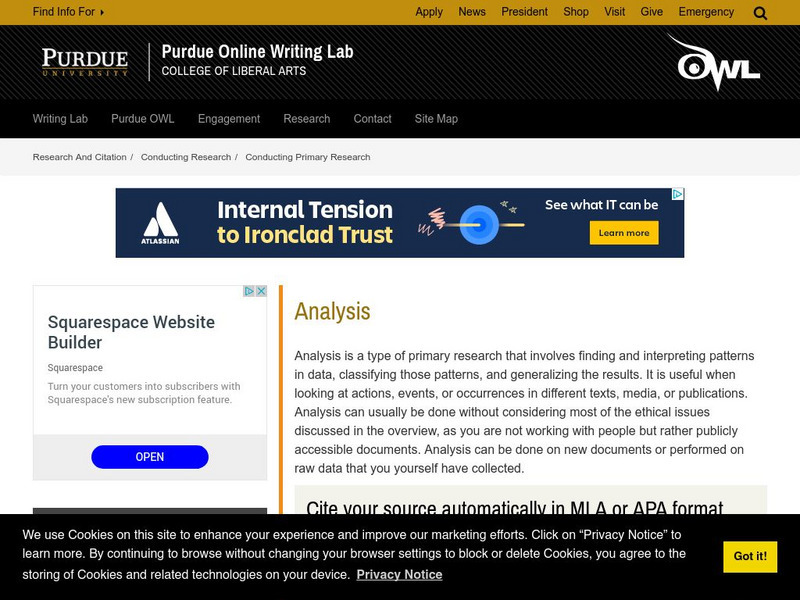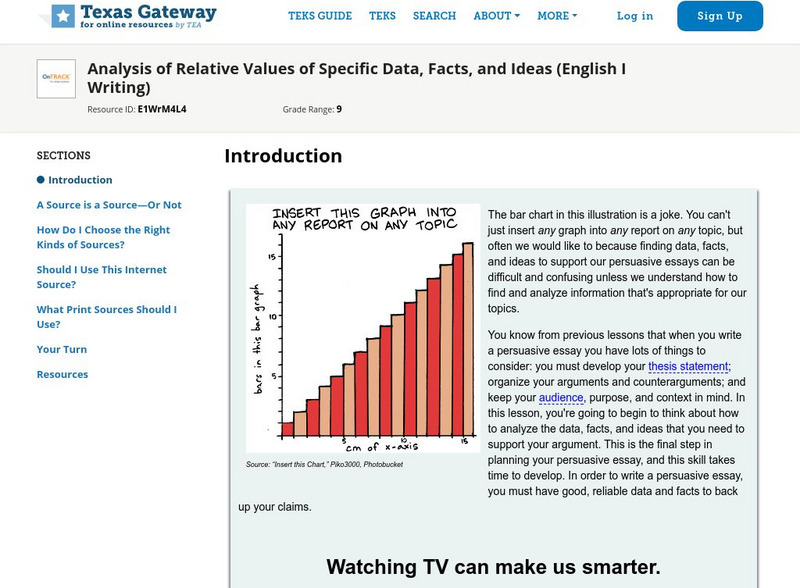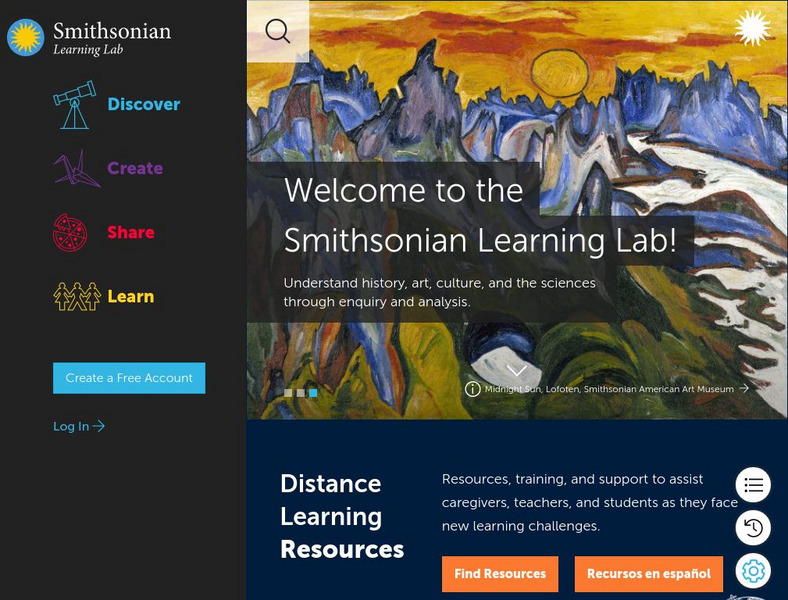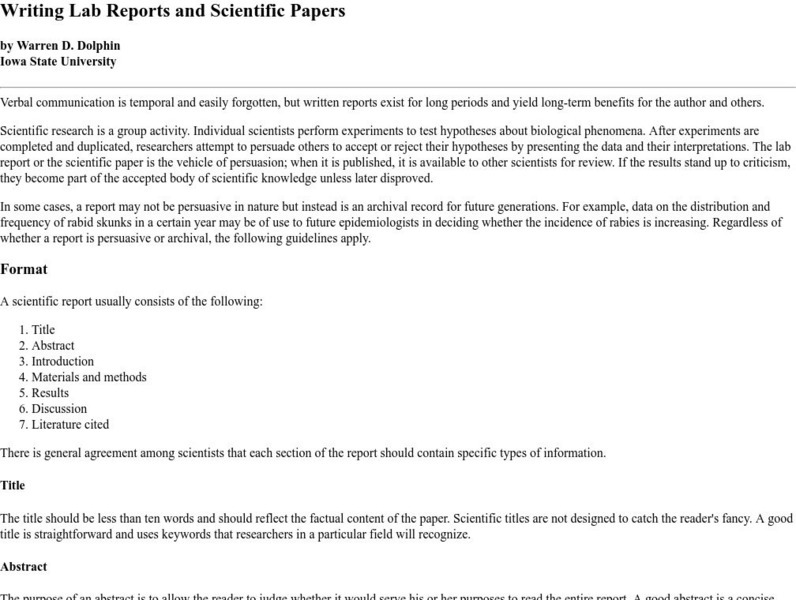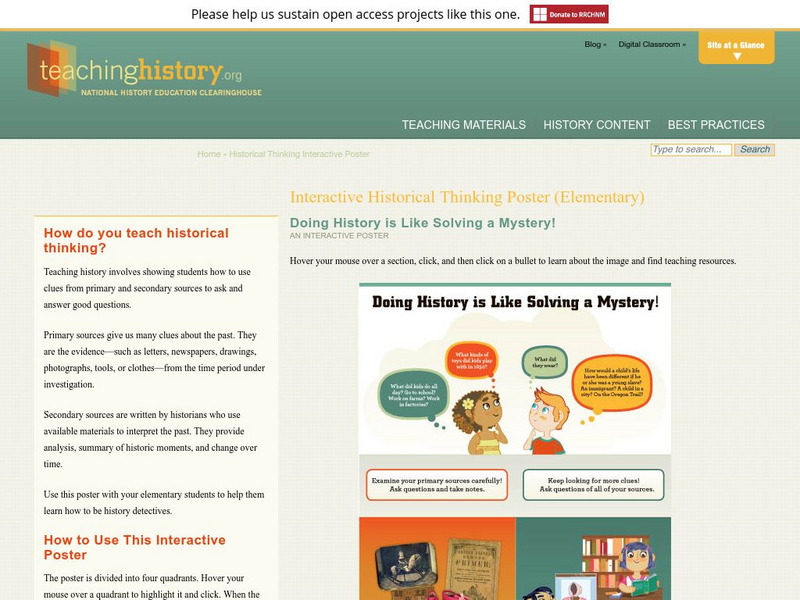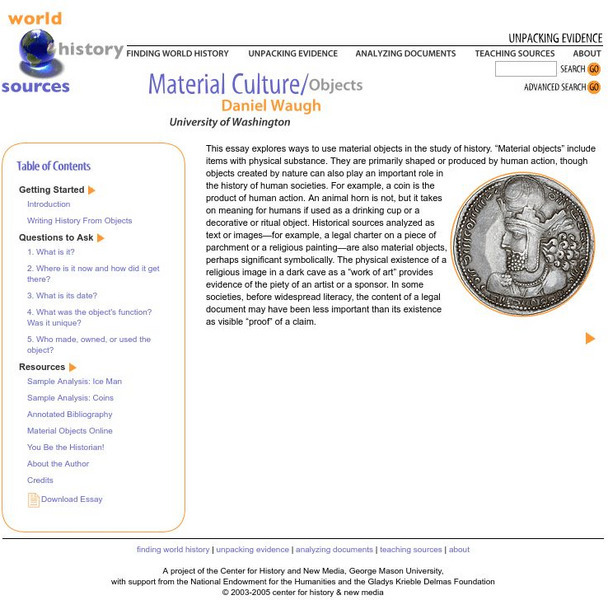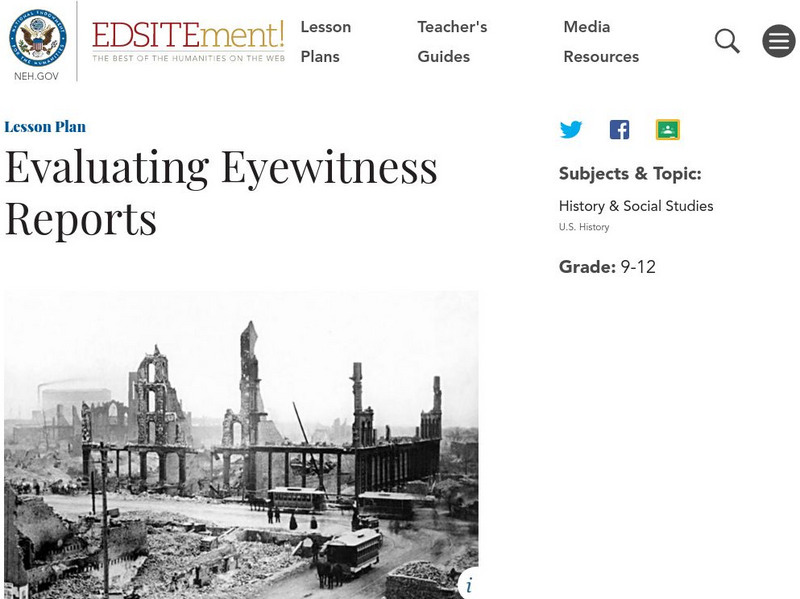Texas Education Agency
Texas Gateway: Evaluate Graphics in Informational/procedural Text
You will learn how to evaluate graphics for their clarity in communicating meaning and achieving a specific purpose.
Virginia Tech
Digital History Reader: Introduction
An online learning module for the U.S. and European history. Presents central questions of key events in history. Students explore data, evaluate conflicting accounts or interpretations, and develop conclusions based on primary evidence....
Center for Innovation in Engineering and Science Education, Stevens Institute of Technology
Ciese: Historical Treasure Chests
After learning to distinguish between primary and secondary sources, young scholars will examine four primary documents and address a set of questions for each.
Annenberg Foundation
Annenberg Learner: Bridging World History: Maps, Time, and World History
Learn how map projections and chronological constructs are used in the study of world history and help us to understand and interpret the past. Part of a larger site on world history, this unit on maps offers complete reading,...
University of California
University of California, Davis: The History Project
The History Project is a growing collection of lesson plans, teaching tools, digitized images, and documents for the teaching of history. Includes assignments for having students apply analytical skills to primary sources.
University of Toronto (Canada)
University of Toronto: Engineering: Types of Documents
This site offers links to types of documents used to communicate information in the workplace. They include short reports, proposals, memos, case studies, and lab reports.
Online Writing Lab at Purdue University
Purdue University Owl: Analysis
This entry focuses on using analysis to interpret primary resources; it provides methods and examples of analysis. W.9-10.10 Write Routinely
Texas Education Agency
Texas Gateway: Analysis of Relative Values of Specific Data, Facts, and Ideas
[Accessible by TX Educators. Free Registration/Login Required] In this lesson, students can practice finding specific types of sources and learn the questions to ask when evaluating information for a persuasive essay.
Texas Education Agency
Texas Gateway: Analyze Clarity of Objectives of a Procedural Text
[Accessible by TX Educators. Free Registration/Login Required] In this lesson, students will learn how to analyze writing in software, warranty, and consumer manuals or publications.
Texas Education Agency
Texas Gateway: Analysis of Relative Values of Specific Data, Facts, and Ideas
[Accessible by TX Educators. Free Registration/Login Required] This lesson focuses on analyzing and evaluating the value of the sources used for evidence in a research project.
Smithsonian Institution
Smithsonian Learning Lab: Teaching With Primary Sources
Five lesson plans, complete with videos, primary sources, and document-based questions (DBQ) to encourage students to utilize primary sources and incorporate thinking and writing into daily learning. Topics include: Artifact &...
McGraw Hill
Writing Lab Reports and Scientific Papers
This site list and describes the seven pieces necessary for a lab report.
Other
Usa Gov: u.s. History and Historical Documents
Discover highlights from American history, including military events and founding documents.
Roy Rosenzweig Center for History and New Media
Teaching History: Doing History Is Like Solving a Mystery!
Use this interactive poster to explore how students understand history and find resources about teaching historical thinking to students.
The Newberry Library
Newberry Library: Art and Exploration of the Poles
Resource with lesson and primary source documents examines the connections between exploration of the North and South Poles and their visual representation.
Other
Harvest
Three modules explain what primary sources are; how to find primary sources in the UIUC archives; how to make sense of a primary source document by examining its creator, the context, and purpose of its creation.
Thinkport Education
Thinkport: The Revolutionary Americas
Find relationships among primary and secondary sources of information that identify where information from different sources converges and where it differs.
George Mason University
George Mason University: World History Sources: Material Culture: Images
Investigate the meaning of different cultures' images and materials. Learn to examine different questions such as what is the image, what is the meaning, what is the function, and what is the social condition.
George Mason University
George Mason University: World History Sources: Material Culture: Objects
Examine different objects from many different cultures. Learn how to decipher what it is, where it came from, what the function is, and who made or owned the object.
George Mason University
George Mason University: World History Sources: Official Documents
A guide to dissecting official documents. Learn how to find the author of documents, the primary audience, and other important information.
Library of Congress
Loc: Primary Source Investigation
Choose from a list of photos from the Civil War, Reform, Harlem Renaissance, and Campaign to study and record observations.
National Endowment for the Humanities
Neh: Edsit Ement: Evaluating Eyewitness Reports
In this lesson, students practice working with primary documents by comparing accounts of the Chicago Fire and testing the credibility of a Civil War diary.
Joe Landsberger
Index Study System
This site gives information on a system of study that uses index cards. Foreign language versions of this page are availabe from the English home site.
Education Development Center
Making Mathematics: Mathematics Research Teacher Handbook: Getting Information
Information for teachers on teaching students how to research and write on mathematical topics. Includes tips for active reading, researching online and journal sources, and conducting interviews to gather information.





